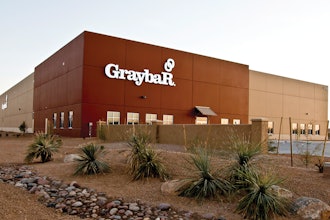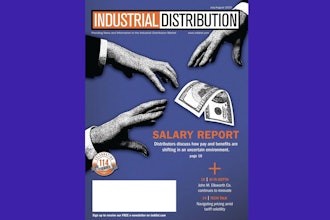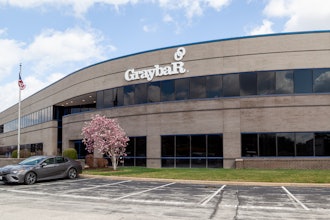
This sponsored article was written by Justin Roff-Marsh, the author of The Machine: A Radical Approach to the Design of the Sales Function. You can get the first 4 chapters of his book in hard copy for free here.
If your business is built on the back of relationships, you may have a big problem.
You may often make the proud proclamation that your business is built on the back of relationships but it’s probably not true (at least not in the way you intend it).
And, if it is true, that may signal a serious problem.
It would be true to claim that your business consists of a number of relationships. Most businesses do. I can say that with confidence because most businesses generate 70% or more of their revenue from existing customers, repurchasing. That means that your business can be accurately described as a collection of commercial relationships.
However, when you use the R-word, that’s not what you mean, is it! Turns out that you don’t need to use the word relationship to refer to commercial relationships because you already have perfectly good words for describing them. You probably call them customers, accounts, or maybe clients.
When we invoke the R-word, we’re pointing to something else. We’re pointing to personal relationships between people in our customers’ businesses and people in ours.
Personal relationships, not commercial ones.
Is it true, then, that your business is built on the back of personal relationships? Well, if you’re a family doctor or a massage therapist, it might be.
But if you distribute industrial products, it’s unlikely to be true, and you’d better hope it isn’t!
Let’s start by considering those customers whose regular purchases generate some 70% of your revenue. Are those customers spending all that money with you because of a personal relationship a purchasing person has with one of your salespeople?
No!
They are buying from you because it’s in their commercial best interests. They keep writing you checks because your products perform as expected, because they like your pricing, and because you deliver on time.
Now, it’s true that one of your salespeople might get on well with a purchasing person but that friendship—to the extent that there actually is one—is more likely to be a consequence of the commercial relationship, than a cause.
Let’s now consider the new customers that are introduced by your salespeople. Isn’t it true that customers buy for the first time because of the friendship they share with your salespeople?
Um, no. It’s not true. Customers buy for the first time because of a compelling commercial proposition that is presented to them by a salesperson. Customers and salespeople may become friends over time but they rarely start out that way.
We know this because whenever we headhunt a salesperson from a competitor (salivating at the thought of their bulging Rolodex), we end up disappointed to discover that they bring with them just one account (and a relatively small one, at that). Conversely, whenever a competitor poaches one of our salespeople, our sleepless nights turn out to be unjustified once we realize that the departing salesperson managed to dislodge just one of our accounts (and a relatively small one at that).
With that, I rest my case. Your business is NOT built on the back of relationships.
But, of course, dear reader. This is all conjecture on my part. I don’t know you and I know nothing of your business.
So, let’s say I’m wrong. Let’s assume that your existing customers are purchasing from you primarily because of a relationship between a purchasing person and one of your salespeople (and not, primarily, because you have a superior business model). Let’s assume that new accounts your salespeople win are limited to those where your salespeople have personal friendships. And let’s assume that when a competitor poaches one of your salespeople, almost all of their accounts walk out the door with them.
Is this really the vision you have for your business?
If not, it’s time you stopped claiming that your business is built on the back of relationships. It isn’t and you’re lucky that it isn’t!
This may be an innocent turn of phrase but words have meanings and there are folks who will seize on them and use them to justify all sorts of less than optimal behaviors.
Justin Roff-Marsh is the founder and President of Ballistix. He is also considered by many as the thought leader in Sales Process Engineering, a radical new approach to the management of the sales function. Justin is also author of the award-winning book on Sales Process Engineering, The Machine: A Radical Approach to the Design of the Sales Function. You can get the first 4 chapters of this book absolutely free here.






















